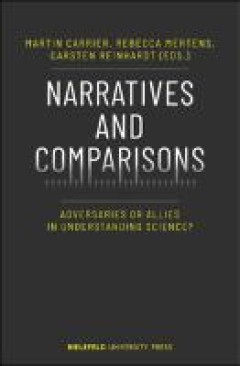Filter by

Science and the production of ignorance :when the quest for knowledge is thwa…
An introduction to the new area of ignorance studies that examines how science produces ignorance--both actively and passively, intentionally and unintentionally. We may think of science as our foremost producer of knowledge, but for the past decade, science has also been studied as an important source of ignorance. The historian of science Robert Proctor has coined the term agnotology to refer…
- Edition
- -
- ISBN/ISSN
- 9780262357142
- Collation
- 1 online resource (328 pages).
- Series Title
- -
- Call Number
- -

Narratives and Comparisons: Adversaries or Allies in Understanding Science?
As a powerful tool in the production of knowledge, comparing plays a crucial part in the sciences and the humanities. This volume explores the relationship between comparing and narrating in epistemic practices and clarifies the ways in which narratives enable or impede practices of comparing. It takes into account related activities, such as measuring and classifying, modeling, establishing no…
- Edition
- -
- ISBN/ISSN
- 9783839454152
- Collation
- -
- Series Title
- -
- Call Number
- -
 Computer Science, Information & General Works
Computer Science, Information & General Works  Philosophy & Psychology
Philosophy & Psychology  Religion
Religion  Social Sciences
Social Sciences  Language
Language  Pure Science
Pure Science  Applied Sciences
Applied Sciences  Art & Recreation
Art & Recreation  Literature
Literature  History & Geography
History & Geography